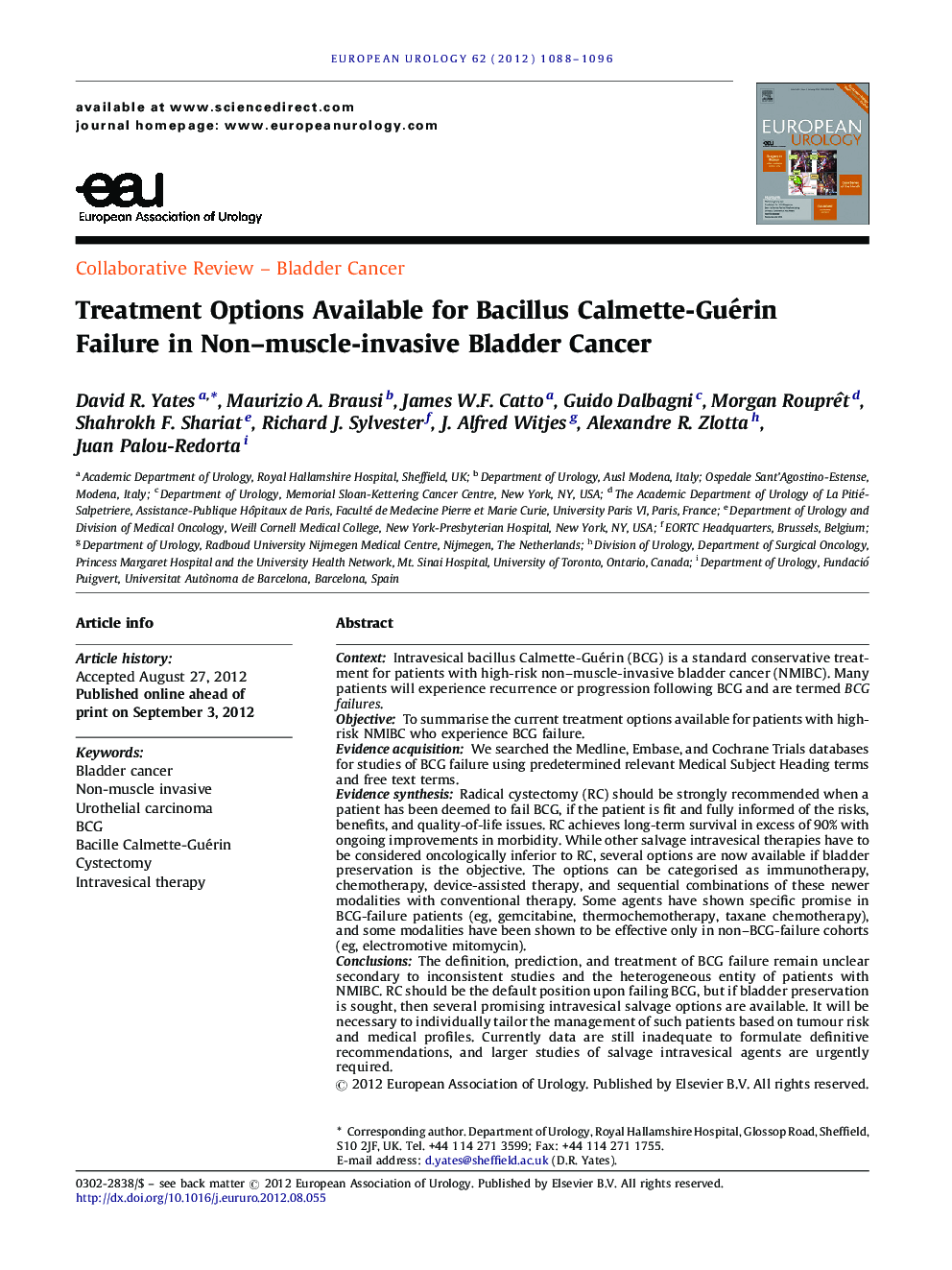| Article ID | Journal | Published Year | Pages | File Type |
|---|---|---|---|---|
| 3922742 | European Urology | 2012 | 9 Pages |
ContextIntravesical bacillus Calmette-Guérin (BCG) is a standard conservative treatment for patients with high-risk non–muscle-invasive bladder cancer (NMIBC). Many patients will experience recurrence or progression following BCG and are termed BCG failures.ObjectiveTo summarise the current treatment options available for patients with high-risk NMIBC who experience BCG failure.Evidence acquisitionWe searched the Medline, Embase, and Cochrane Trials databases for studies of BCG failure using predetermined relevant Medical Subject Heading terms and free text terms.Evidence synthesisRadical cystectomy (RC) should be strongly recommended when a patient has been deemed to fail BCG, if the patient is fit and fully informed of the risks, benefits, and quality-of-life issues. RC achieves long-term survival in excess of 90% with ongoing improvements in morbidity. While other salvage intravesical therapies have to be considered oncologically inferior to RC, several options are now available if bladder preservation is the objective. The options can be categorised as immunotherapy, chemotherapy, device-assisted therapy, and sequential combinations of these newer modalities with conventional therapy. Some agents have shown specific promise in BCG-failure patients (eg, gemcitabine, thermochemotherapy, taxane chemotherapy), and some modalities have been shown to be effective only in non–BCG-failure cohorts (eg, electromotive mitomycin).ConclusionsThe definition, prediction, and treatment of BCG failure remain unclear secondary to inconsistent studies and the heterogeneous entity of patients with NMIBC. RC should be the default position upon failing BCG, but if bladder preservation is sought, then several promising intravesical salvage options are available. It will be necessary to individually tailor the management of such patients based on tumour risk and medical profiles. Currently data are still inadequate to formulate definitive recommendations, and larger studies of salvage intravesical agents are urgently required.
